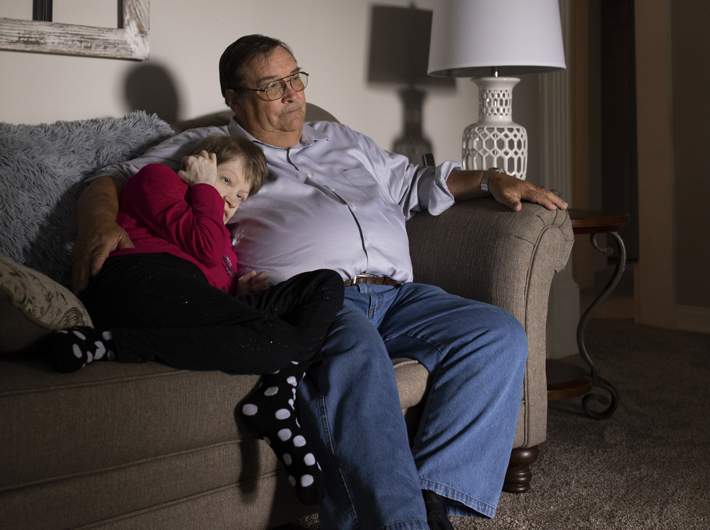More than a decade ago, Vietnam veteran Royce Estes filed a claim for VA benefits for his daughter, Tara. Children of Vietnam veterans who have spina bifida or certain other birth defects can receive disability benefits from the U.S. Court of Appeals, including monetary compensation and health care, because scientific studies indicate that there’s a link between these birth defects and a parent’s Agent Orange exposure while serving in Vietnam. Tara was born with encephalocele, a birth defect that causes a hernia of part of the brain and the membranes that envelop the brain and spinal cord through a cranial defect. As a result, Tara suffers from profound mental retardation, an inability to walk, incontinence, and an inability to communicate verbally. She is now in her forties, but still needs around-the-clock care and lives with her parents.
Estes contacted the VA about Tara’s condition in the 1980s, as a doctor had told him her condition was related to spina bifida, but he was told nothing could be done. It was defeating for the veteran. “There was nothing I could do,” said Estes. “They were just washing their hands of it.”
But starting in 1990, the VA was forced to recognize that scientific studies show that many types of cancer and other diseases are the result of Agent Orange exposure. Estes began to receive service-connected benefits for himself at the 100 percent disability level due to illnesses and conditions that the VA linked to his exposure to Agent Orange while serving in Vietnam. In 1996, Congress expanded the law to provide for VA disability benefits for children of Vietnam veterans who are born with any “form or manifestation” of spina bifida. So Tara’s condition should have qualified her for benefits.

The family was not aware of the new law until 2007, when Estes filed a claim with the VA for benefits for Tara. His claim was denied, and then he appealed. The claim was remanded by the Board of Veterans’ Appeals (BVA) for additional evidence, and in 2011, a VA examiner opined that Tara’s condition was not spina bifida. Their claim for VA benefits for Tara was denied.
Then NVLSP called him and said, “Estes, we believe you have a case here.” NVLSP appealed the case to the U.S. Court for Veterans Claims.
NVLSP’s research showed that in a 2002 precedential decision, Jones v. Principi, the Court overturned a BVA decision denying benefits to a child of a Vietnam veteran born with encephalocele and sent the case back to the Board to obtain a medical opinion addressing whether encephalocele is a “form or manifestation” of spina bifida under the 1996 statute. NVLSP cited this case in their appeal, and in 2013, the Court invalidated the Board decision and sent the case back for the Board to obtain the same type of medical opinion that it had required in the Jones case.
But NVLSP did not stop there. NVLSP sent a Freedom of Information Act request to the VA for a copy of the medical opinion that the VA ultimately obtained in the Jones case. This move struck pay dirt. The medical opinion disclosed to NVLSP by the VA stated that encephalocele is indeed a “form or manifestation” of spina bifida. Moreover, the VA had granted benefits in the Jones case based on that medical opinion.

“I don’t know what we would have done without you all.”
NVLSP turned around and submitted these documents to the Board on behalf of Estes, along with a legal brief and a second favorable medical opinion that NVLSP had obtained. Still, the BVA was not convinced.
In January 2014 and again in November 2014, the BVA remanded the case for still more medical opinions. But NVLSP and the Estes family did not give up.
Finally, in February 2017, the BVA granted the claim for disability compensation for Tara.
A decade after their claim was filed — the Estes family received retroactive disability compensation to the date of their initial claim in 2007 (10 years of back payments of monthly disability checks). Tara qualifies for additional health care and future disability compensation from the VA.
Her parents are relieved. “I don’t know what we would have done without you all,” said Estes.

